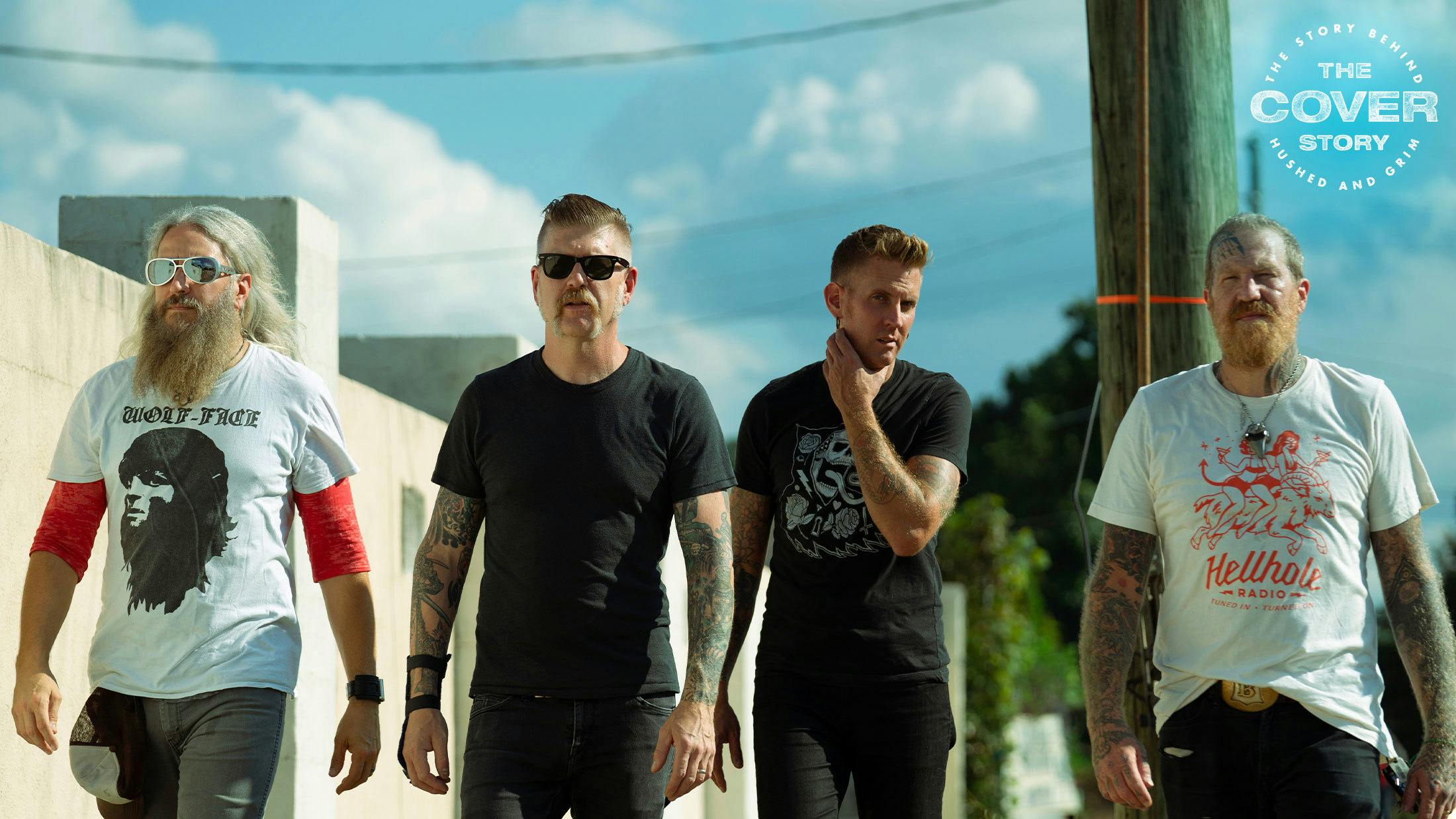Although the average Mastodon jam session is bookended by 30 minutes of frank discussion about love and loss, life and death, there is still a need to speak deeper truths through louder means. “We’re dudes and we’re guarded in those respects,” reasons Brann. “Emotionally, I think we don’t say as much as we want to. The way we say it without saying it is through our music.”
“As you get older, you start to lose people,” continues Bill, perhaps alluding to the subsequent passing of veteran tour manager Bob Dallas in February 2019. “I guess we’re getting to be pros at it. It’s not like, ‘Hey, feel sorry for us, we’ve lost someone.’ It’s about facing head on the path of life into death.”
“It’s about taking the factual, brutal darkness of a life’s moment, then really trying to navigate through and beyond it,” picks up Troy, who notes that, unlike his bandmates, Nick’s passing was his first close-up experience with grief. “Writing and recording this record was like grief counselling for me: started out feeling horrific, came out feeling fantastic. Even if we wanted to write a happier record, we couldn’t. Our band doesn’t work that way. We can’t just shovel all of the darkness aside and say that everything was great.”
Characteristically unsubtle, Brent hammers the point home.
“It feels like someone has to die for us to make an album. I hate this feeling. But, when loved ones close to us pass, we feel obligated to pay this tribute to them musically for some reason. We’ve got all of these records under our belt, and so many of them are paying homage to fallen friends. We’ve been through some rough shit, like most people have. We just choose to take time to give it what feels like a forever place in the world.
“When you make music about someone who’s passed, it makes them still alive.”
